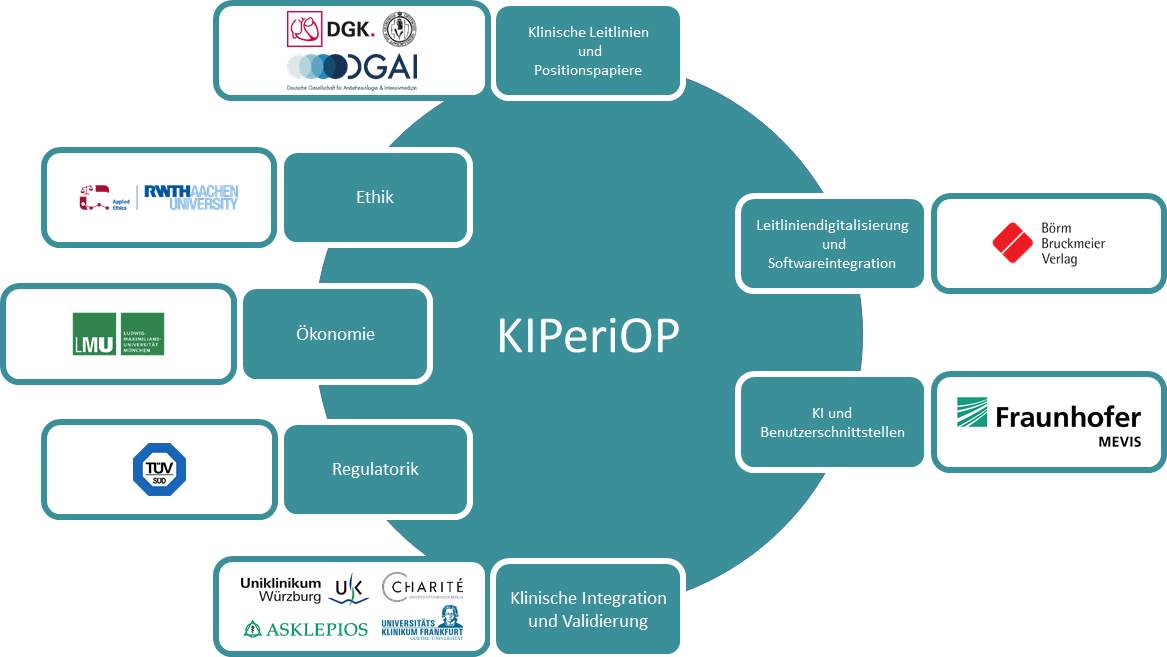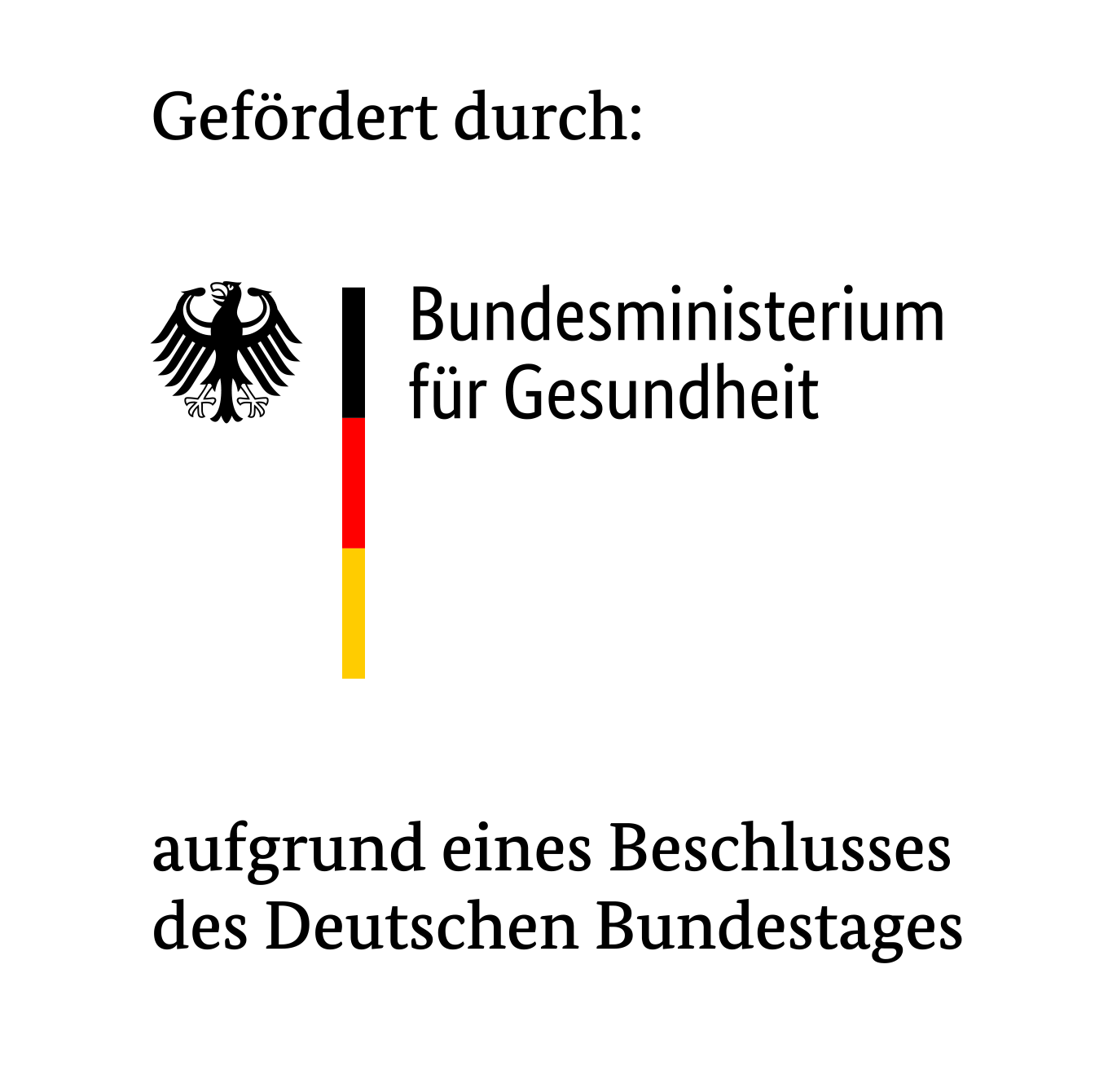Motivation
Despite many medical advances, perioperative mortality in western industrialized countries has hardly changed in the last ten years. It continues to be reported at 0.4 - 0.8%, which includes a high number of preventable deaths. The risk of permanent damage, or even death, during surgery is thus significantly higher than generally assumed. Typical complications during or after surgery include cardiovascular complications (such as myocardial infarction, stroke, and acute kidney dysfunction), blood coagulation disorders (including pulmonary embolism and bleeding), and infections (such as pneumonia, wound infection, sepsis). In the worst cases, these can lead to death. Perioperative complications and mortality depend greatly on patient-associated risks.
With this in mind, increasing focus is being given to the preoperative phase. This includes the systematization of preoperative risk assessment with the documentation of patient- and operation-specific risks at the earliest possible stage. Only knowledge of the individual risks and underlying diseases can enable patient-specific prevention of perioperative complications.
Objectives
Clinical decision support (CDS) systems have great potential to support and accelerate medical decision-making processes in real time, thereby increasing the precision of medical care. Expert systems can help health professionals analyze patient-specific data sets, improve medical diagnoses, and apply personalized treatments and follow-up care.
The goal of KIPeriOP is to incorporate both established medical guidelines, expert, innovative data-driven methods, and AI-based models into CDS tools to provide clinical users with the best possible support in their daily decision-making. Software solutions are developed and evaluated to consider account performance, user-friendliness, data protection, and ethical and economic dimensions.
Overall, the project is intended to improve patient-centered health care and strengthen the quality and cost-effectiveness of German health care.
Project responsibilities
The interdisciplinary project consortium is coordinated clinically by Prof. Patrick Meybohm (UK Würzburg) and technically by Prof. Anja Hennemuth (Fraunhofer MEVIS).
Physicians from the University Hospital Würzburg, Asklepios Medical School GmbH, the University Hospital Frankfurt and the Charité-Universitätsmedizin Berlin are responsible for patient care, data acquisition, and the clinical integration and validation of data.
Fraunhofer Institute for Digital Medicine MEVIS is responsible for the development and evaluation of innovative and easily accessible AI modules for clinical decision support.
Börm Bruckmeier Verlag is responsible for the development and production of CDS solutions.
The Faculty of Applied Ethics at the Rheinisch-Westfälische Technische Hochschule Aachen is responsible for the analysis and conception of ethical requirements for digital clinical decision support.
The Department of Sport and Health Sciences at the Technical University Munich analyzes the economic implications of clinical decision support.
TÜV Süd supports the project consortium in examining the relevant regulatory aspects.
The German Society for Cardiology - Heart and Circulatory Research e.V. (DGK), the German Society for Anaesthesiology & Intensive Care Medicine (DGAI), and the German Society for Surgery (DGCh) support the dissemination of project results.
 Fraunhofer Institute for Digital Medicine MEVIS
Fraunhofer Institute for Digital Medicine MEVIS

